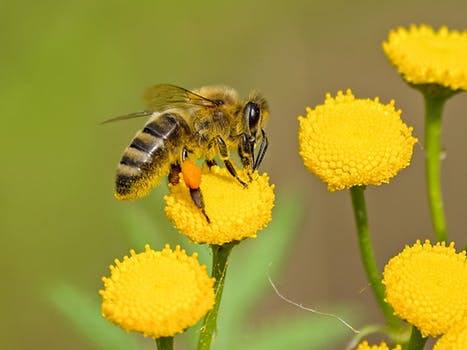To Bee Gone

Many people run away frantically when spotting a bee near them, fearing that they will be stung. Wouldn’t it be great if these “deadly” pests would just disappear? Well wish no more, because as of today, many species of bees have been placed in the endangered species list, and may soon go extinct. Sounds great, right? Well not really. With the extinction of bees, it could also mean the extinction of humanity.
So, how could the extinction of bees affect the rest of us on earth? The answer is shocking. Research shows that bees are responsible for pollinating 70% of our food produced, such as fruits, vegetables, nuts, and seeds. Bees are also responsible for over $200 billion in global agricultural revenue.
There are several factors that are leading bees to extinction. With pesticides, such as insecticides, increasing in agriculture ever since WW2, it is no wonder we are seeing a drop in bee populations. A class of insecticides known as neonicotinoids have been known to cause paralysis, death, confusion, and disorientation in a whole colony of bees. After meeting with neonicotinoids, the bees central nervous system falls into shock. It can even result in the bees forgetting how to get home.
Another factor that contributes to the declining bee population are parasites, such as Varrao mites. Varrao mites can only reproduce in bee colonies. Affecting both adult and young bees, these blood sucking parasites give bees a disease that can make them lose their wings, legs, and, later, their life.
Beekeepers are also noticing many of their bees disappearing, which has come to be known as colony collapse disorder. This is because many groups of bees leave together, leaving the queen bee alone with a few immature bees in the colony.
With the decline of bees, plant production rates will be tremendously slow, so you can enjoy your cotton shirt for now. Not only that, it will cause a global famine as food production will decrease along with water. Moreover, with the declining of bees, there will be a decline of plants overall, so barren land will become a common sight for us.
Next time you see a bees, don’t kill it or run away. Try saying thanks or please don’t go!










